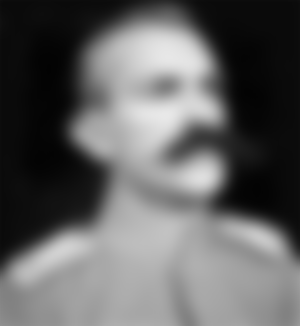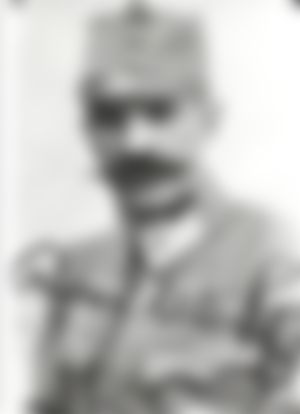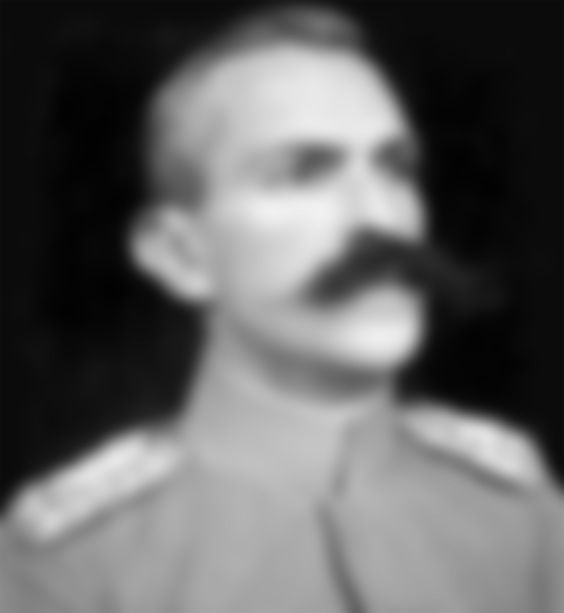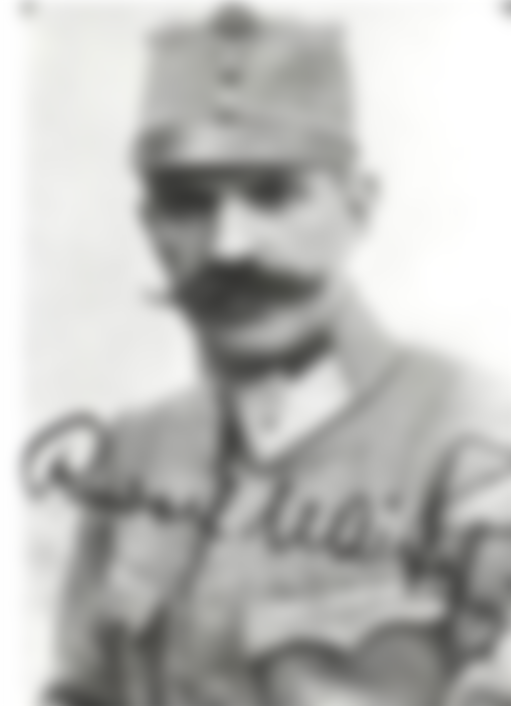Good morning my dear friends!
Today is a national holiday in my country Slovenia, Rudolf Maister Day. We celebrate it in memory of November 23, 1918, when General Maister and his army disarmed the German security guard and took over the military region in Maribor.
WHO IS RUDOLF MAISTER?

Rudolf Maister Vojanov is a national hero, general, visionary, patriot and artist.
Rudolf Maister was born on March 29, 1874 in Kamnik as the youngest, third, son of a financial employee Franc Maister and Frančiška, born Tomšič.He died as a result of a stroke on July 26, 1934 in Ounce.He was buried with great honors in the Pobrežje cemetery in Maribor.
A soldier in the Austrian army
Rudolf attended primary school with great success, first in Mengeš and then in Kranj, where in 1885 he started attending the lower grammar school in Kranj and finished it in 1890. Between 1890 and 1892 he completed the fifth and sixth grades of the Ljubljana grammar school. Due to his father's early death (he lost it when he was barely three years old) and because there were no more funds for further education, he entered the two-year Home Guard cadet school in Vienna after the 6th grade. Throughout his primary and secondary school education, he was fascinated by his military profession by his uncle Lovrenc, who took care of him after his father's death, so his decision to become a soldier was not surprising. He graduated as a cadet in Vienna in 1894 and was appointed cadet and head of the company. He then served as an officer trainee in the Home Guard Regiment in Klagenfurt and in Ljubljana, where he became involved in cultural and social life. In 1895 he became a lieutenant, completed several schools for officers, and attended a riding school for infantry officers in Ljubljana. As an officer, he served and participated in military exercises and thus got to know different places and lands of the Habsburg monarchy or. most of the Slovenian national territory. He later benefited from this in the battles for the northern border and in the demarcation of the border with Austria and Italy. After the demonstrations of 1908 in Ljubljana, the army transferred him to Przemyśl in Galicia and included him in the 18th Home Guard Regiment.In 1910, due to decisive military exercises, he became commander of the 7th Battalion, then he was promoted to captain and became commander of the non-commissioned officer school. He became seriously ill during strenuous military exercises, and was assessed as a severe lung patient during a medical examination, so he was sent for treatment to Dalmatia and to a health resort near Cairo in Egypt. Not yet fully recovered, he was transferred to the Black Army (Landsturm) in 1913. He served in Celje, where he became the commander of the Celje branch.During his military service he married Marica Stergarjeva. In the marriage, their two sons were born, Hrvoj (1905) and Borut (1908). After the beginning of the First World War, 1914, Rudolf Maister was transferred to Maribor and assigned a position as a clerk at the district headquarters of the Black Army in Maribor. In 1916 he became its interim commander. Due to allegations by German nationalists, he was transferred to Graz in March 1917, where he was promoted to major. As a major, in July 1917 he was appointed permanent commander of the Black Military District Command in Maribor, where he was until the collapse of the monarchy.

Maister was judged by his superiors to be a good, diligent and hard-working Austrian cadet and officer, whose qualities were reflected in team leadership, pedagogical skills and the formation of a military community. Evaluative were the assessments of his relations with superiors, peers and subordinates, as well as the content of military acts, which shows that he was well acquainted with the weapons and mobility of troops. It was his intellectual abilities and exceptional athletic qualities (gymnast, swordsman, swimmer, skier) that enabled him to advance steeply in various military schools and positions.
General Rudolf Maister (1874−1934) is one of the most notable Slovenian personalities of the 20th century. With his courageous deed at the end of the First World War, after the disintegration of the Austro-Hungarian monarchy, first in Maribor and then in the wider Styrian area, he enforced the popular will and achieved that a large part of the Slovene ethnic and speech area of Styria and Carinthia came under Slovene rule. that is, the Yugoslav administration.
The disintegration of Austria-Hungary and the defense of the Slovenian northern border in Styria
In Maribor, after July 1917, Maister allied himself with leading Slovene politicians and at the end of the war cooperated with the National Council in Styria. On November 1, 1918, he took command of Maribor and all of Lower Styria and subordinated them to the authorities of the National Council for Styria. The council promoted him to general. In November 1918, he founded the Slovenian Army in his area with about 4,000 soldiers and 200 officers.
Determination of the border with Austria and Italy
On January 27, 1919, an American military delegation arrived in Maribor to discuss the demarcation of borders with Rudolf Maister.
Artist and organizer of cultural life
From an early age, Maister’s life was intertwined with literature, music, and painting. As a high school student, he published his student newspaper Inter nos and later Večernica in manuscript, the line Pokopali smo was published in Vrtec and poems (Mors ruit, Ob zibki) in the student newspaper Vesna. He later published his poems mostly in Ljubljanski zvon and Slovan (Ženska in vino, Ciganka, Brodnik, Moj vinski kot, Patra Feliksa zdravilo, Legenda, Iz boja, Domov, Bolno srce, Ptičja romanca (). In 1904 he published a collection of Poetry. In his poems, he expressed the national liberation and the pain of the tragedy that so many boys fell in World War I.
He was also involved in the organization of culture and published literary anthologies.
Maister painted as an amateur. In the Vienna cadet class, he received an excellent grade throughout his studies of freehand drawing, and he also achieved very good success in the subject of drawing military positions. Later, his interest in landscaping grew (the most famous is the painting Bled).

Maister was a passionate lover of books. He collected old books and arranged a valuable, rich library. Today, the University Library in Maribor keeps around 600 books he has collected.
Recognitions, decorations and memory of him in Kamnik
Rudolf Maister was awarded the Bronze Memorial Medal for the Armed Forces (1898), the Jubilee Military Cross (1908), and a commendation by decree c. kr. Ministry of State Defense in recognition of many years of special zealous and effective training of units (1910), Medal of Military Merit (1916) and commendation c. kr. Ministry of State Defense (1917).
He received three high decorations in the Kingdom of Serbs, Croats and Slovenes. For command in the Carinthian offensive in 1919, for extraordinary military merit he was awarded the Order of the White Eagle III. Degrees with swords, for "merits for the king and the homeland" in the peacetime military field, he received Karadjordj's star IV. Degrees, for cultural and literary work he received in 1933 the Order of St. Sava I. degree. In 1920 he was awarded the prestigious title of "Honorary Adjutant Nj. Majesties of the King ”. The President of the Czechoslovak Republic awarded him the Cross of War for Military and National Merit. The General received various honors. A number of Slovenian municipalities named him an honorary citizen or honorary citizen, first in 1919 the municipality of Fram near Maribor. It was followed by other surrounding municipalities, and then with special ceremonies by the municipalities with which it was closely connected - Kamnik (15.4.1924), Kranj and Maribor.

Diploma of an honorary citizen of the town of Kamnik, 1924
The greatness of General Rudolf Maister's action lies in the fact that he was aware of the importance of determination in the creation of a new state at the collapse of the Austrian monarchy. Maister was not only a soldier, he was a visionary.
Photos are taken from google.com.
Thank you for reading my article.

I wish you nice day and greetings for all from @Purebeauty.





Wow, Happy Rudolf Maister Day to you and everyone in Slovenia. I've never heard of him before and that's what I like here in read.cash. We share our countries culture, tradition people and food and it's amazing! Thank you for sharing.